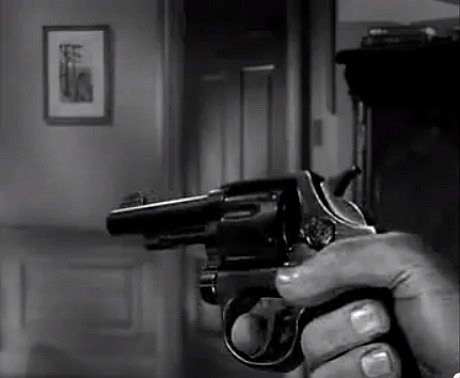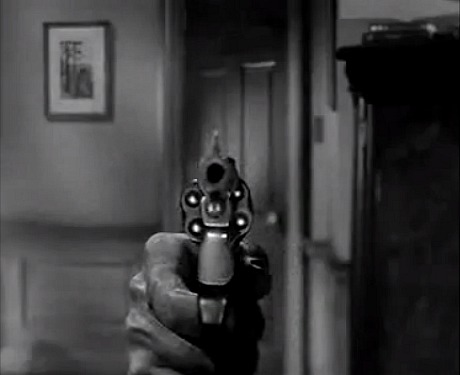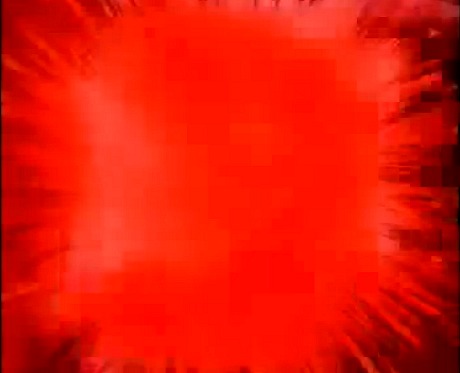Contraband (Universal, 1.13) is a low-rent action programmer that thousands of people will presumably pay to see this weekend and then say shit to each other on the way out. “Aaahh, it was all right…it had some okay stuff…sure. Who am I kidding? We all just sat there….waste of time…whose idea was it to see this? Mark Wahlberg…guy’s an actor, can’t win ’em all, right? Who’s the guy who played the younger brother of Kate Beckinsale? Caleb Landry Jones? Guy’s an asshole. Wahlberg saying ‘he’s family, he’s my brother in law, I gotta help him out, make it right.’ Guy’s a waste of skin, they shoulda cut him loose. And Giovanni Ribisi…Jesus! Everytime I see him he’s playing a greasy, bearded, lowlife scumbag. He needs to give that a rest. Really.”
Daily
Critics Choice Awards
7:02 pm: Best Picture: The Artist. Wells comment: Easily one of the slightest, least substantial and least interesting Best Picture favorites in the history of the motion picture industry. People who voted for this film are emotional-default chumps and should really be ashamed of themselves. The Artist is a nice, likable, light-hearted film — neat concept, nothing wrong with it. But I spit on those who are calling it the best of the best.” (Lumenick: “The cameraman got Harvey Weinstein on the first try this time! Bravo!.”) Indiewire’s list of all the CCMA winners.
6:53 pm: Best Actor: George Clooney, The Descendants. Wells comment: I would have preferred to see Moneyball‘s Brad Pitt take it, but Clooney is open and wounded and hurting and quite good in Alexander Payne‘s drama. (Lumenick: “This house band is from hunger.”)
6:43 pm: Best Actress: Viola Davis, The Help. Wells comment: Davis doesn’t play a lead in The Help but whatever…a great actress, deserves her moment…fine with it. (Lumenick: “Sure hope this happens at an actual awards ceremony.”)
6:31 pm: Best Director: Michel Hazanavicius, The Artist. Wells comment: Disagree, undeserved, overpraised, thumbs down.
6:23 pm Update: Best Original Screenplay: Woody Allen, Midnight in Paris; Best Adapted Screenplay: Aaron Sorkin, Steve Zaillian, Moneyball. (Lumenick: “Editing of presentation makes no sense, like anything else at CCMA show.”) Wells comment: Good fellows, great scripts.
Earlier: I’ve been working on a couple of things and not paying attention to the currently-underway Critics’ Choice Movie Awards at the Hollywood Palladium. The tally as of 6 pm: Acting Ensemble award: The Help; Best Supporting Actress: Octavia Spencer, The Help; Best Supporting Actor: Christopher Plummer, Beginners; Best Comedy Award: Bridesmaids; Best Animated Film: Rango; Best Foreign Film: A Separation; Best Young Actor or Actress: Thomas Horn, Extremely Loud & Incredibly Close.
N.Y. Post critic Lou Lumenick is hilariously cranky on Twitter: “This is the worst awards show I have ever seen — set, cameras, lights, sound — it’s just horrible!! Scorsese is probably wishing he could fix the sound mix…the interiors in Barry Lyndon look brighter than this…Does Dylan have a no-close-up clause? Or are they just forgetting to do them?…Scorsese seems to be struggling to hear his own award presentation. Sound is incredibly lousy. Not easy to make some of the most attractive people in the world look they came straight out of a casket. Oh, and by the way Marty, you also won the documentary award. Now get the hell off the stage. ”
Tongue Punisher
Earlier this afternoon a person of accomplishment and respect informed me that the way to pronounce the last name of Michel Hazanavicius, director of The Artist, is first of all to drop the “h” and say “azah-nava-shoosh .” That didn’t sound right. All along I’ve been saying “Hahznahvicious,” as in Sid Vicious, and I’ve been to France eight or nine times so I know a little something about the tongue.
So I double-checked with a couple of Weinstein Co. publicists, and one of them said you need to pronounce it (this is how she wrote it in the email) “Ahzahnavishus.” Another vote for Sid Vicious! I’m sorry, but I’m standing by this pronunciation. I can’t roll with Michel Azanavashoosh…stupid. Can anyone settle this, or at least tell me I’m right in not agreeing with the above-referenced “person of accomplishment and respect”?
Contagion, Blindness Meet, Fall In Love
What’s with the female narrator? I’ve been to this realm before, and I’m not sure there’s anything very special to be had except for Eva Green‘s nudity. Perfect Sense (IFC Flms, 2.10) played at Sundance a year ago and then opened in England last October. Director David McKenzie‘s last half-decent effort was Young Adam (’03), another film with Ewan McGregor dropping trou.
A Little Romance
One of the great things about Wes Anderson‘s Rushmore, for me, was that you had teens and tweeners dealing in a calm, matter-of-act way with a sexual affair between a guy in his early ’50s and a teacher in her mid ’30s, and a story that involved obsession, betrayal, jealousy, big-time finance, erotic hunger, cigarette-smoking and revenge. This trailer for Moonrise Kingdom, Wes’s latest, feels less adult and a little more tweeny. But you can’t go by a trailer.
Wolves Ripped My Flesh

I wasn’t aggressive enough to push my way into the howling papparazzi mob when Liam Neeson arrived for last night’s premiere of The Grey, so here’s a photo from UPI.
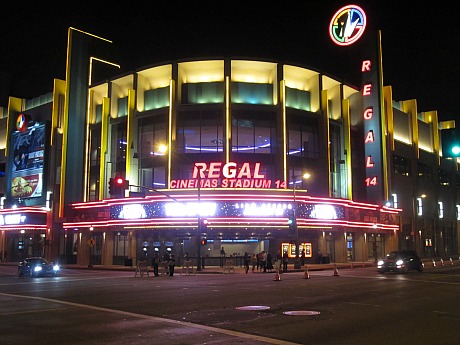
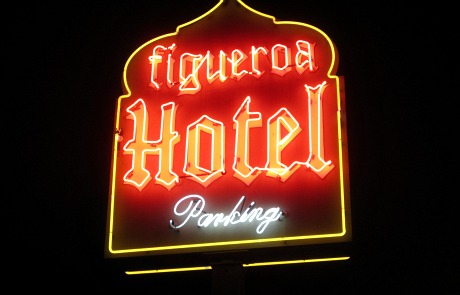
Thai Mahogany
“A Best Picture Oscar is a kind of significant statue, a stamp, the chiselling of a thought, a moment in time carved on a Thai mahogany bedpost that will be looked at and contemplated for decades to come.” — posted on 2.5.11.
I’m obviously not posting anything new here, but for all the loathing that is thrown each year at Academy voters and Oscar tradition tendencies, you can’t really say the same thing about most of the other awards. You sure as shit can’t say this about the Golden Globes, although the show itself (happening this Sunday) is arguably just as entertaining and certainly more perverse than the Oscar telecast.
Which is why, for me, it’s infuriating to contemplate the currently-most-likely winner of the Best Picture Oscar.
Fresh Margaret Booking
L.A. Weekly critic Karina Longworth has announced that Cinefamily (611 No,. Fairfax, just south of Beverly) has booked Kenneth Lonergan‘s worth-seeing but really-hard-to-see Margaret for a one-week run starting on 1.27. Let no one doubt that Hollywood Elsewhere is just as much of a friend of Margaret as anyone else. This movie can best be appreciated if seen with a hip responsive crowd.

Lonergan, a reclusive, highly sensitive man who for the most part has been too much of an Ivory Tower resident to go out and talk to people who admire his film, has spoken to In Contention‘s Kris Tapley.
Karger Throws In Horse Towel
Last night Entertainment Weekly‘s Dave Karger admitted that the string has run out on War Horse. He didn’t say that Steven Spielberg‘s World War I cornball-and-treacle drama was Oscar toast — that would have been too declarative. But his 1.11 piece is titled “War Horse: Are Its Oscar Hopes Fading?” And in the world of Karger-speak you know what that means.
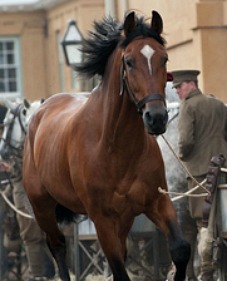
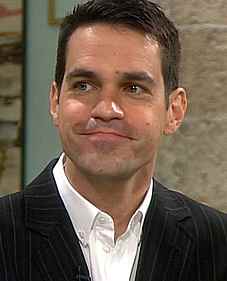
The gist of the article was basically “wait…whoa…what happened?”
It’s one thing when a Spielberg-hater like myself says War Horse‘s Oscar hopes are all but dashed, or when measured, dispassionate pundits like TheWrap‘s Steve Pond or Indiewire‘s Anne Thompson come to the same conclusion. But you know the game is really over when “Safe Dave” — perhaps the leading divining rod of conventional emotional-default thinking among award-season pundits — joins in.
“When I saw War Horse in November, it seemed to me a great bet for Oscar nominations in at least six categories, including picture, director, adapted screenplay, cinematography, art direction, and editing,” Karger writes. “Some of my respected Oscar-prognosticator colleagues even began predicting it would win Best Picture after its strong Christmas debut in limited release. But with Oscar-nomination ballots due this Friday, I’m wondering what happened.
“Without any real standout performances, is the film not connecting with actors? With its wartime setting and sweeping visuals, did it strike people in the industry as too blatant an awards contender?”
Uhm…I think you might be on to something, Dave, with the “too blatant” thing.
I think on some level I still blame Karger for his relentless predictions that The King’s Speech would beat The Social Network last year. I know that Academy members and the DGA in particular were sold on Tom Hooper‘s film for their own reasons, but Karger and his ilk pushed the bandwagon along, and you’ll never convince me that they didn’t nudge a lot of fence-sitters into the King’s Speech boat. They provided some of the wind that inflated its sails.
Which is why I wrote the following last January when the Academy nominations were announced during the 2011 Sundance Film Festival:
“I need to accept and deal wiith what’s happened but…but…wow, I don’t feel so good. I like and admire The King’s Speech — it’s a very stirring and well-made film — but at the same time I feel like Milan Kundera did when the Soviet tanks rumbled into Prague. And standing next to the turret on the tank at the head of formation are Dave Karger, Anne Thompson, Peter Howell and their allies, all wearing Soviet military uniforms and beaver hats.”
Shut Up Doc
Why did LCD Soundsystem frontman James Murphy decide to disband “one of the most celebrated and influential bands of its generation at the peak of its popularity”? I’ve never understood this kind of thing. Break up a band to start another, possibly better one…fine. But why commit ritual seppuku in front of thousands of worshipping fans? You can’t just “quit.” You have to soldier on.
I’m seeing this Sundance 2012 doc for the music, and because the trailer tells me that Reed Morano‘s cinematography is mesmerizing. But God…Murphy looks like a wreck, like an Irish bartender from Bushwick who’s been burning the candle at both ends.
What lasting eternal good was achieved by The Band breaking up when they did? Okay, Martin Scorsese got a good concert doc out of this (i.e., The Last Waltz) but who gets profound pleasure out of saying “we’re done”?
The press notes say that LCD’s decision to terminate and throw a final concert on 4.2.11 at Madison Square Garden “ensured that the band would go out on top with the biggest and most ambitious concert of its career. The instantly sold out, near four-hour extravaganza did just that, moving the thousands in attendance to tears of joy and grief, with New York magazine calling the event ‘a marvel of pure craft” and Time magazine lamenting “we may never dance again.”
Shut Up was directed by Dylan Southern and Will Lovelace.
Good Stuff Never Wanes
“I recently watched There’s Something About Mary, and I found that the shock of that movie’s laughs had worn off — they’d stopped being funny. This only clarified a suspicion I’ve held for years. While ordinary comedies lose their appeal once you know the laughs are coming, the truly great ones only get funnier. It’s almost like I can make myself laugh by remembering the joke that’s coming, then laugh again when the joke actually plays out onscreen, and finally laugh a third time out of relief that it played as well as I’d remembered.” — written over two years ago by critic James Frazier.
Trepidation
I’m sorry but since that West Side Story overture screwup I’ve come to regard MGM Home Video as a Mrs. Grace L. Ferguson & Storm Door video distributor. They’ve shown they don’t know much about older films, so what will their next screwup be? Will their Spellbound Bluray include the red barrel flash when Leo. G. Carroll shoots himself? Will their Annie Hall Bluray have the correct subtitles in that Alvy-and-Annie flirtation scene?
